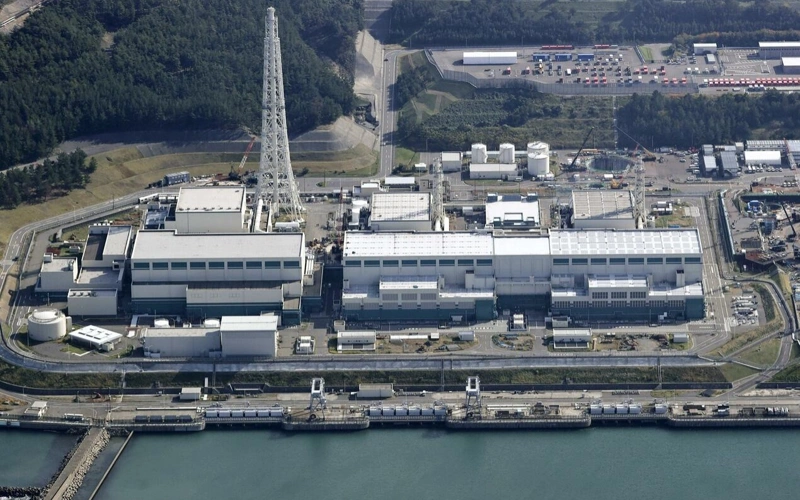Japan moving closer to restarting world’s biggest nuclear power plant
Niigata Gov. Hideyo Hanazumi on Friday approved the restart of two nuclear reactors at the Kashiwazaki-Kariwa power plant, the first for its operator Tokyo Electric Power Company Holdings Inc. since the 2011 Fukushima accident, one of the world's worst nuclear crises, Kyodo reports.

Hanazumi made the decision despite acknowledging that residents of the Sea of Japan coast prefecture are "deeply divided" over the No. 6 and 7 reactors restarting at the seven-unit complex, with concerns persisting over TEPCO's management following repeated security lapses at the plant.
The governor's approval is essential for the restart in the wake of multiple meltdowns at the Fukushima Daiichi nuclear power complex, triggered by a massive earthquake and tsunami crisis in 2011.
Over half of the country's 33 operable nuclear reactors are still offline but the Japanese government has shifted energy policy to maximize the use of nuclear power, seeing it as a stable, carbon-free energy source.
If the prefectural assembly northwest of Tokyo gives its go-ahead before the end of the year, the No.6 unit could be restarted as early as January, according to a source with knowledge of the situation. Its technical preparations have already been completed.
Hanazumi, who had not made clear his position after taking office in 2018, told a press conference in Niigata that in giving the nod for the reboot, he will ask the government to take seven steps such as building roads to allow evacuation at time of an accident and to carefully explain safety measures to residents.
Hanazumi was asked in March 2024 by then industry minister overseeing nuclear policy to support the restart.
"I believe that the more awareness for safety measures and disaster prevention steps increases among the people, so their support for the restart will expand," he said.
The governor said he will ask the prefectural assembly to discuss whether he can stay on as governor after making the latest decision at its 20-day session starting Dec. 2.
If the assembly endorses the governor's decision, Hanazumi will report the move to the state, ending the process of obtaining local consent. Both heads of Kashiwazaki and Kariwa, the municipalities hosting the nuclear complex, are generally in support for the restart.
Ryosei Akazawa, the new industry minister who took office this year, told a press conference, "I am extremely grateful for the governor's decision."
The two units had cleared safety reviews by the Nuclear Regulation Authority under stricter post-Fukushima safety regulations in December 2017.
The Japanese government hopes the reboot will help secure electricity for Tokyo and the surrounding areas in a stable manner.
TEPCO sees the restart as a major pillar of its operations which will contribute to higher revenues that can be used to compensate people affected by the Fukushima nuclear accident and help lower utility costs.
Hanazumi's approval comes despite some local opposition to the restart and persistent distrust of TEPCO stemming from the Fukushima crisis and multiple security issues, including an unauthorized access incident, at the Kashiwazaki-Kariwa plant.
A survey of Niigata residents showed earlier this month that 50 percent were in support and 47 percent against bringing the Kashiwazaki-Kariwa plant back online, while nearly 70 percent said they were concerned about TEPCO being responsible for its operation.
Over 10 years after the Fukushima accident, many residents still cannot return home due to high radiation levels. TEPCO sticks to the roadmap to decommission the Fukushima Daiichi plant by 2051 but has repeatedly postponed processes due to multiple troubles.
The security issues at the Kashiwazaki-Kariwa plant in 2021 have led the Nuclear Regulation Authority to ban TEPCO from moving nuclear fuel at the complex, effectively prohibiting the restart of the nuclear reactor. The ban was lifted in December 2023.
Eager to obtain approval, TEPCO said in October it would disburse around 100 billion yen ($644 million) to the Niigata prefectural government to help revitalize the local economy. It also said it will consider scrapping the Nos. 1-2 units at the complex.
Earlier, Qazinform News Agency reported that Niigata government OKed TEPCO's first restart of 2 nuclear reactors since Fukushima.
